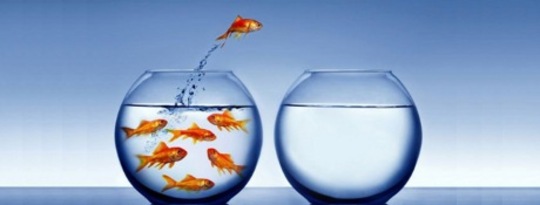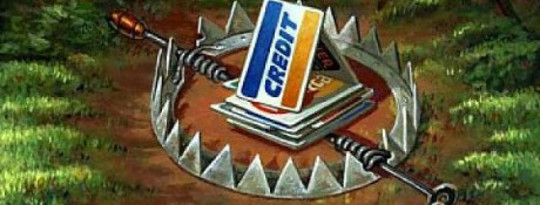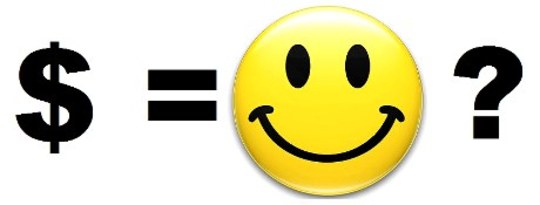- By Nomi Bachar
 One of our most important lessons involves learning to express our best self amid the reality of our daily life. Our knowledge of how we as individuals fulfill our life purpose is not an intellectual understanding; it is a heartfelt, intuitive experience coupled with a desire to share and contribute.
One of our most important lessons involves learning to express our best self amid the reality of our daily life. Our knowledge of how we as individuals fulfill our life purpose is not an intellectual understanding; it is a heartfelt, intuitive experience coupled with a desire to share and contribute.
 Take a moment to think of a task you wish to accomplish in the next three months. It should be something specific like clearing out your backyard, or completing an online course, so that you could judge, definitively, if and when it has been completed.
Take a moment to think of a task you wish to accomplish in the next three months. It should be something specific like clearing out your backyard, or completing an online course, so that you could judge, definitively, if and when it has been completed.
- By Jim Donovan
 We've all said it at one time or another. "Someday I'll ... go back to school, ask for a raise, improve my skills so I can be promoted, find a new job, start saving for our future." What is your version of "Someday I'll...?"
We've all said it at one time or another. "Someday I'll ... go back to school, ask for a raise, improve my skills so I can be promoted, find a new job, start saving for our future." What is your version of "Someday I'll...?"

Do you remember being asked what you wanted to be when you grew up? This was often a question my teachers directed to the class at the beginning of a new school year. It was also considered a good opener by other adults who really didn’t know us all that well. What did I want to be?

Humans tend to detect winning and losing streaks in situations that are actually random. The first study of this phenomenon in non-human primates finds that monkeys share this “hot hand bias.” Scientists disagree about whether this unfounded belief is a cultural artifact picked up in childhood or a predisposition deeply ingrained in...
- By Stuart Wilde
 It isn't hard to see the abundance of our planet. You only have to look at the fruit trees in the fall, the lushness of life. Buckminster Fuller calculated that if all the wealth of the world was divided equally among its citizens, each and every one of us would be a millionaire.
It isn't hard to see the abundance of our planet. You only have to look at the fruit trees in the fall, the lushness of life. Buckminster Fuller calculated that if all the wealth of the world was divided equally among its citizens, each and every one of us would be a millionaire.

We pored through a debt-resistance manual created by former Occupiers to bring you these practical tips. Last month PM Press published the Debt Resisters' Operations Manual—also known as “the DROM.” But don’t let that menacing-sounding acronym fool you
 There is a direct relationship between surrendering control and manifesting miracles because of the difference between desire and desperation. Desire pulls things towards you, while desperation pushes them away...
There is a direct relationship between surrendering control and manifesting miracles because of the difference between desire and desperation. Desire pulls things towards you, while desperation pushes them away...
- By Karen Hering
 Hope, I am grateful to note, has a habit of showing up at my door when I least expect it. Of course, there are also times when hope fails to show up, and I need to send out a search party just when I am least equipped to organize one. But for now, we might begin our reflections on hope by considering...
Hope, I am grateful to note, has a habit of showing up at my door when I least expect it. Of course, there are also times when hope fails to show up, and I need to send out a search party just when I am least equipped to organize one. But for now, we might begin our reflections on hope by considering...
- By Jules Pretty

In the industrial era, economic growth has become equated with human progress, with a fundamental assumption that material growth and consumption inevitably leads to improvements in our well-being...
- By Kat Duff

Innumerable studies have documented the ill effects of insufficient sleep, defined as getting less sleep than we need to be our best. Beyond the tiredness, fogginess, and grumpiness we commonly note the next day, less-than-optimum sleep impairs focus, judgment, problem solving, and memory.

Here’s a fun fact: Abraham Lincoln didn’t go to law school. He independently studied the law, registered with the Sangamon County Court in Illinois and passed an oral examination by a panel of attorneys. He was then given his license to practice law.

In the lingering aftermath of the Great Recession, recent college graduates are having a tough time of it. As state aid for education has fallen, student loans have risen, leading to crippling levels of debt that has climbed to more than $29,000. Limited options after graduation in a tight job market only make this situation difficult.

How important, if at all, is having more money for our happiness and well-being? Unsurprisingly this question stimulates a lot of opinion and debate. But are people accurate in their predictions about the benefits of having money?
 Sequencing is the idea that the right steps at the right time get you where you want to go. Often, people understand where they are and know where they want to go, but the sequence of steps from here to there eludes them...
Sequencing is the idea that the right steps at the right time get you where you want to go. Often, people understand where they are and know where they want to go, but the sequence of steps from here to there eludes them...
- By Robert Reich

It’s often assumed that people are paid what they’re worth. According to this logic, minimum wage workers aren’t worth more than the $7.25 an hour they now receive. If they were worth more, they’d earn more. Any attempt to force employers to pay them more will only kill jobs.
- By Alan Cohen

Every belief system gives way to a greater one. Even science, which seems “solid,” is constantly casting aside old notions in favor of new ones. This does not make the system, the people who represent it, or related experiences wrong. It just makes them outdated. For you, at least.

You cannot entirely control your subconscious mind, but you can voluntarily hand over to it any plan, desire, or purpose which you wish transformed into concrete form. The possibilities of creative effort connected with the subconscious mind are stupendous and imponderable. They inspire one with awe...

The Congressional Budget Office (CBO) released a new report on Obamacare’s impact on the economy that ignited an enormous amount of controversy.
- By Kurt Koontz

Eugina was using her time on the Camino to contemplate her next move in life. It made me wonder how my life would have been different had I undertaken this challenge in my twenties. Would this spiritual refreshment have allowed me to confront my alcohol demons at an earlier point in life? Would I have taken the same career path?
- By Alan Cohen

Santa Claus is not a person, but he is a principle, a dynamic, a universal idea that goes far beyond a person. Santa Claus represents a benevolent universe that knows our needs and can and will deliver our good to us. Santa is a cultural form — a local permission slip through which we allow ourselves to receive the blessings...
 Fear runs our show from behind, driving us to choices we regret, opportunities we miss, often to the point of grief for what was or what could have been. But the truth is that fear is not a reality, it is a “what-if”. Fear causes the paralysis of our...
Fear runs our show from behind, driving us to choices we regret, opportunities we miss, often to the point of grief for what was or what could have been. But the truth is that fear is not a reality, it is a “what-if”. Fear causes the paralysis of our...
 What separates people who ultimately succeed from those who fail is simply a larger number of tries and a willingness to keep failing. People succeed because they have an increased tolerance for failure, paradoxically suffering even more failures than people who don't succeed...
What separates people who ultimately succeed from those who fail is simply a larger number of tries and a willingness to keep failing. People succeed because they have an increased tolerance for failure, paradoxically suffering even more failures than people who don't succeed...
















